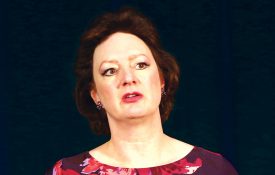-
Studying First Impressions: What to Consider?
First impressions are long-lasting. This familiar phrase indicates one of the many reasons that studying people’s first impressions is critical for social psychologists. Any information about a person, from her physical properties to her nonverbal
-

Mahzarin Banaji and the Implicit Revolution
APS Past President and William James Fellow Mahzarin Banaji pioneered research in implicit social cognition. Her collaborators and former students celebrate her work and influence.
-

How Scientists Are Blocking Bias in the World at Large
Psychological researchers like APS Fellow Naomi Ellemers are applying the scientific understanding of implicit bias to address discrimination in law enforcement, medical, and workplace settings.
-

The Bias Beneath: Two Decades of Measuring Implicit Associations
Since its debut in 1998, an online test has allowed people to discover prejudices that lurk beneath their awareness — attitudes that researchers wouldn’t be able to identify through participant self-reports. The Observer examines the findings generated by the Implicit Association Test over the past 20 years.
-
Educationism: The hidden bias we often ignore
The first time Lance Fusarelli set foot on a university campus, he felt surrounded by people who seemed to know more than him – about society, social graces and “everything that was different”. He attributes
-
Getting rid of the negative stereotypes — and biases — about aging
What can be done about negative stereotypes that portray older adults as out of touch, useless, feeble, incompetent, pitiful and irrelevant? With late-night TV comedy shows where supposedly clueless older people are the butt of

